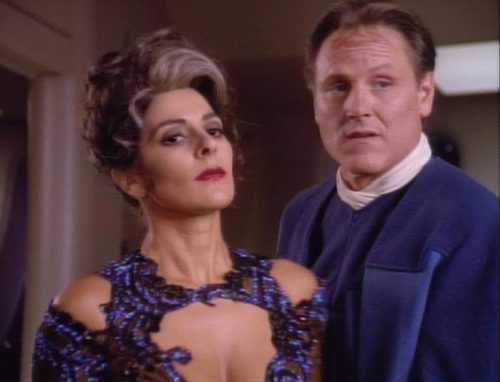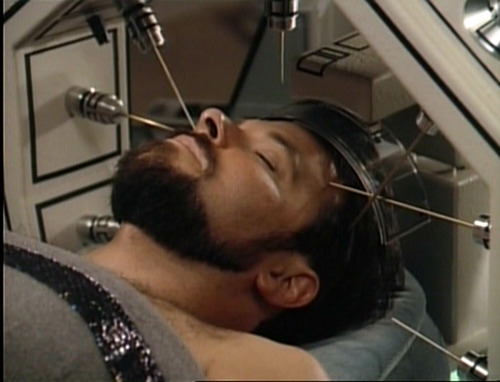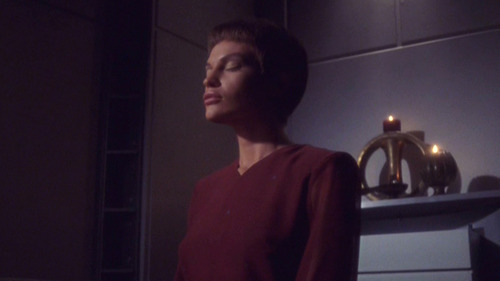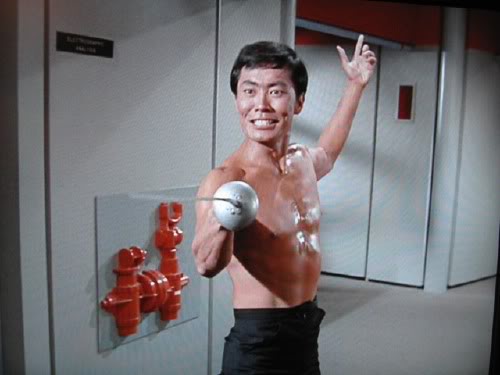If you’d asked me a couple of weeks ago, I would’ve written off “Man of the People” entirely as another Troi rape episode that makes women look hysterical and portrays older women especially as objects of revulsion and/or pity.
In case you’re not familiar with the episode, in a nutshell it tells the story of Alkar, a mediator whom we find channels all his negative energy and emotions into women (whom he calls “receptacles”) in order to prevent them interfering during negotiations.
When his current “receptacle” (who’d been passing as his elderly mother) dies, he switches to using Troi, convincing her to participate in a ritual that he says is a funeral meditation.
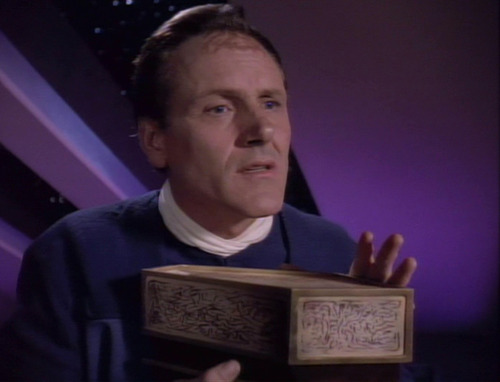
Troi then takes the place of his emotional “receptacle” and becomes territorial, jealous, irresponsible, aggressive and hypersexual. She also ages so rapidly that her life is clearly in danger.
I still think the episode has serious issues, but reading Robin Roberts’ Sexual Generations: “Star Trek: The Next Generation” and Gender (which I’m planning on reviewing soon separately) convinced me to give it another try and try to see other potential layers.
In her book, Roberts writes of this episode:
“[Alkar’s] exalted title suggests that behind every successful man there is a woman. However, this episode shows, in horrifying detail, the cost to the woman behind the man.”
She continues:
“This episode’s feminist message is more obvious than in previous episodes because the male is not a sympathetic character here. Instead, he is depicted as a vampire who destroys likeable women.”
Re-watching the episode I don’t agree that it’s feminist overall, but I can see where Roberts draws her analysis, and there are a few scenes that I could appreciate.
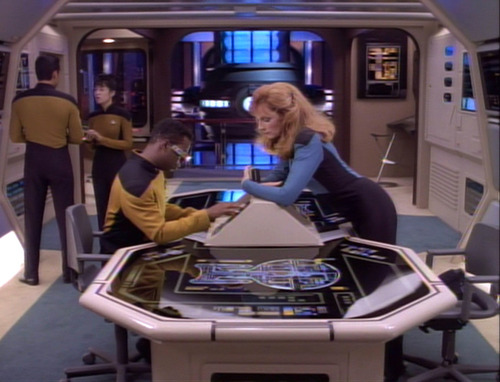
First, I liked how Dr. Crusher was the one to raise concerns about Alkar’s “mother” and pursue them doggedly even when Picard was reluctant to breach protocol. Ultimately she’s the one that comes up with the solution to “kill” Troi and force Alkar to break the link.
This makes it a decent episode for Crusher. She can see that something’s not right way before anyone else can, she puts the victims first, and she doesn’t give up. Really, if anyone should get snuggles at the end for sticking by Troi, it should be Bev, not Will.
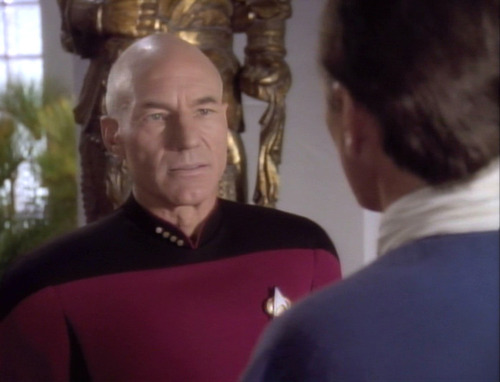
Second, I like the conversation Picard has with Alkar on the planet, once Picard is finally convinced of Alkar’s crimes. The actor playing Alkar could have maybe been a touch more convincingly deluded, but it’s the overall debate and the way Picard clearly shuts down Alkar’s attempts to moralize his assaults.
Picard: So then you deliberately used Deanna.
Alkar: She’s an empath. I was reasonably certain I could establish a link with her. Frankly, I was amazed when I saw how quickly she’d aged. Usually my receptacles survive for years.
Picard: Receptacles?
Alkar: Come now, Captain. Surely you can see there’s a broader canvas here. If I came to these peace talks hindered by unwanted emotions, the Rekags and Seronians would be condemned to go on fighting
Picard: You cannot explain away a wantonly immoral act because you think it is connected to some higher purpose.
Alkar: Captain. do you know how many people have died on this planet in the last forty eight hours? Thousands. Deanna Troi is just one individual.
Picard: That does not justify brutalising her, nor any of the others you have used.
Compare this to the end of “Violations”, where Picard practically empathizes while talking to the attacker’s father because “Earth was once a violent planet, too.”
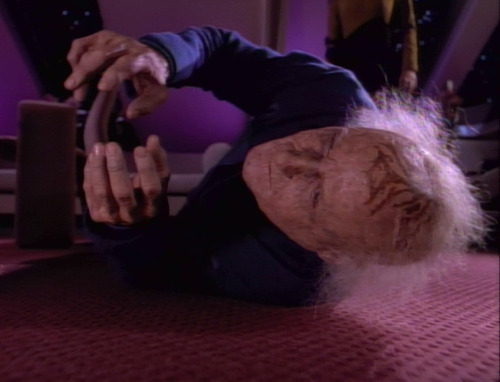
Which brings me to the ending, where Alkar is killed by his own negative emotions rebounding. So at least Troi gets a modicum of justice and Alkar’s punishment is dramatically shown for the audience.
There are also a number of nice details in the episode, including the casket-shaped box where Alkar keeps the stones to link him to his “receptacle”, and the fact his original transport ship is called the “Dorian”, a la Dorian Grey.
Side note: the Dorian is also super phallic. Get a load of this:
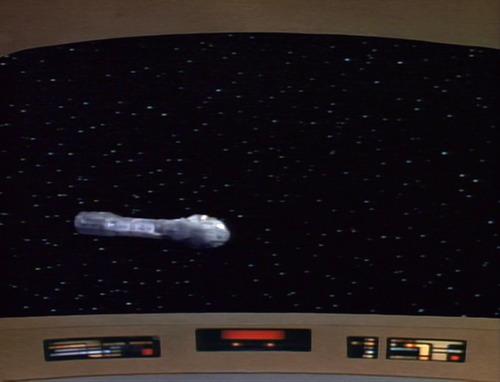
But these aspects of the episode can’t make me put aside my earlier analysis. I’ll reiterate my main problems:
- The fact that we only see women living with this extreme emotional transference makes it hard for us to separate Troi and Alkar’s mother’s possessiveness, neediness, paranoid jealousy and hysteria from the fact that they are women, especially as these traits coincide with negative feminine stereotypes.
- Showing extreme negative emotions leading to someone looking old is pretty ageist. Plus it doesn’t really make sense, and even if it did, why would only the outside of their bodies age while their hearts, lungs, bones and other major systems show no effects? And how do all those physical effects reverse when Alkar dies?
- Most significantly, the episode is one of several that show the writers’ had difficulty thinking up plots for Troi that didn’t involve her being raped or otherwise victimized.
Bechdel-Wallace Test: Pass. Crusher and Ogawa talk about Troi.







